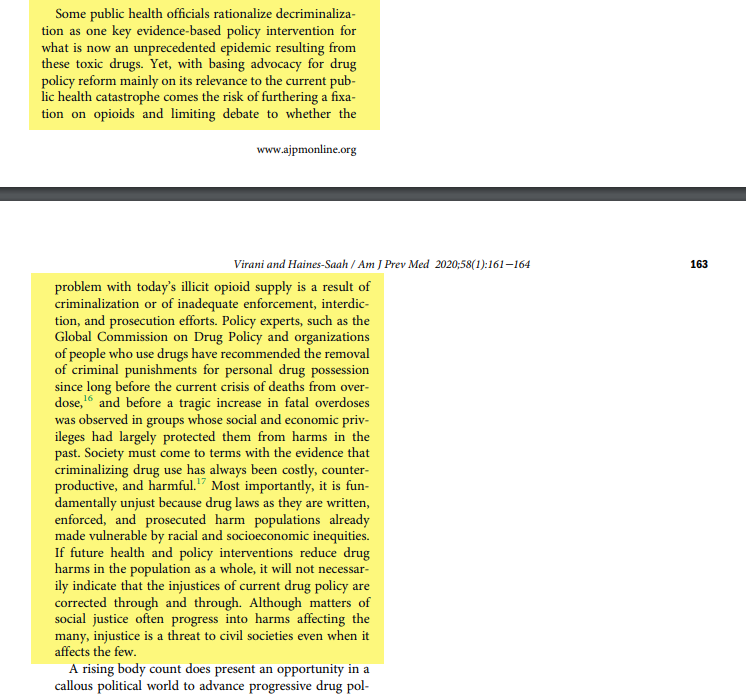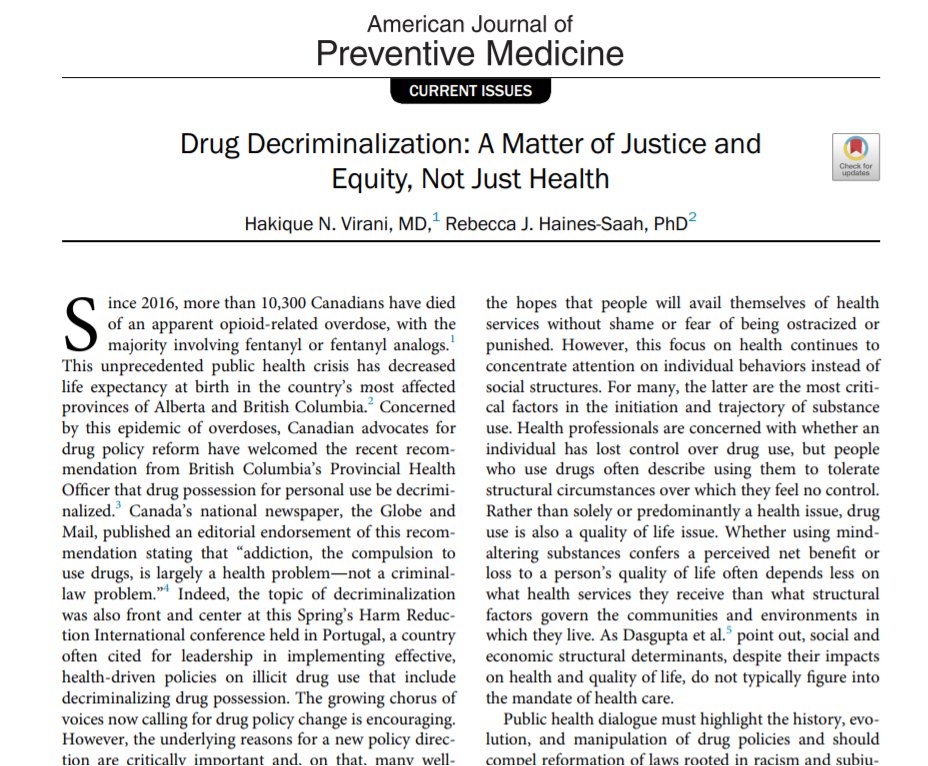
Why do some Canadian provinces have among the most ineffective pandemic responses in the world? Why do we keep failing in public health crises?
@ehyshka and I wrote about the systemic lack of public health independence and how to right the ship mid-pandemic.
(Thread)


@ehyshka and I wrote about the systemic lack of public health independence and how to right the ship mid-pandemic.
(Thread)
https://twitter.com/TheHillTimes/status/1331686625722691589
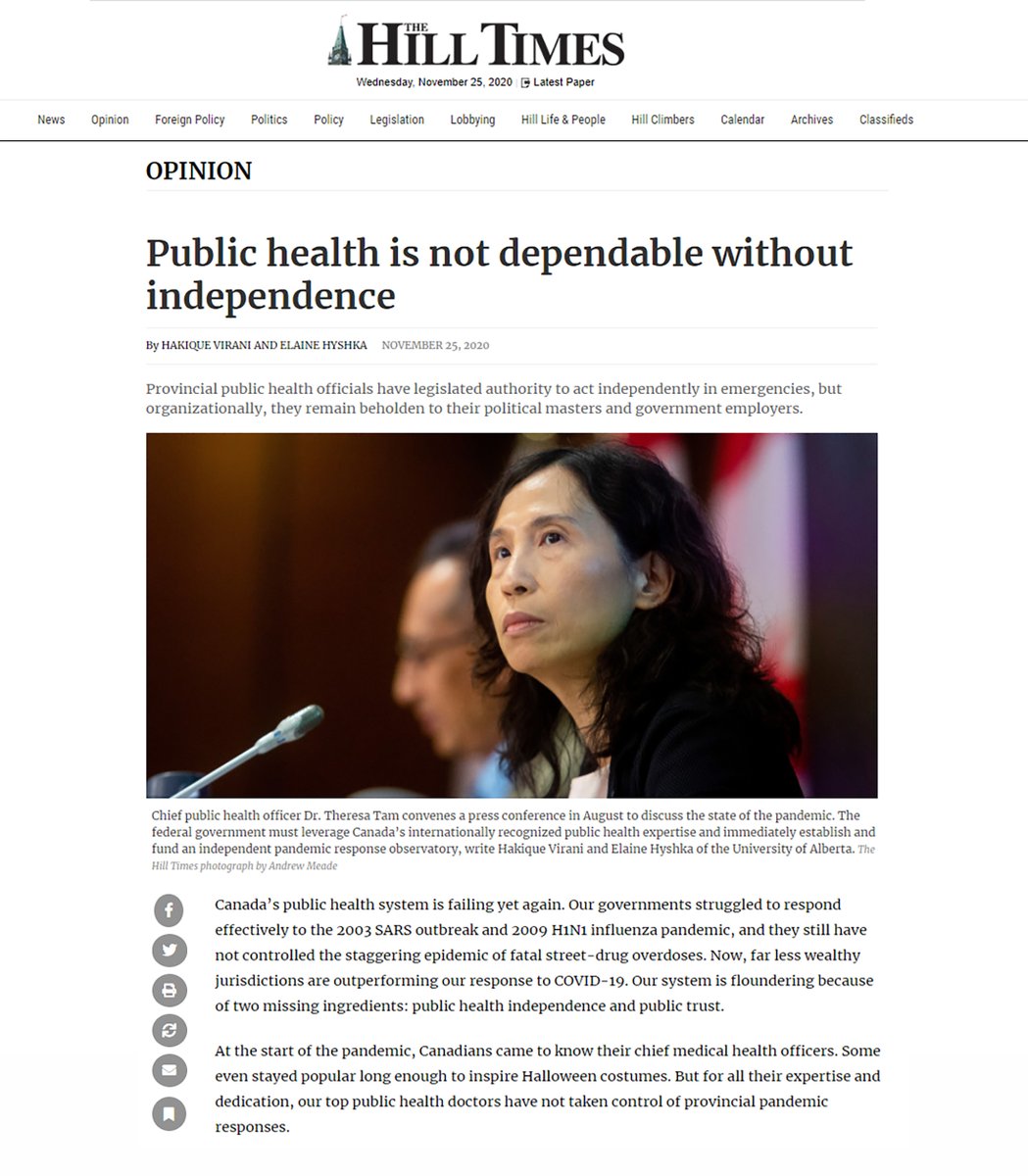
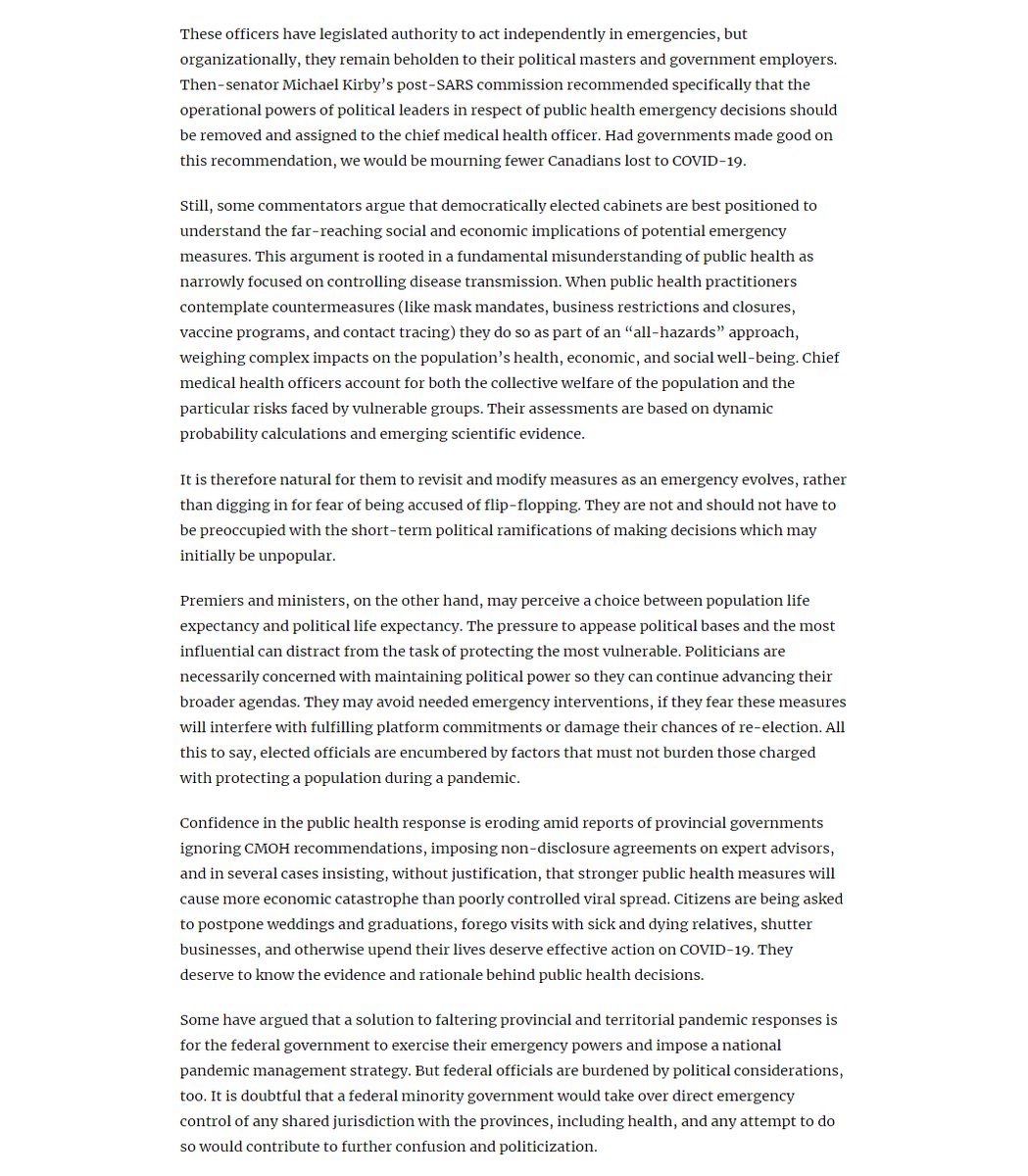
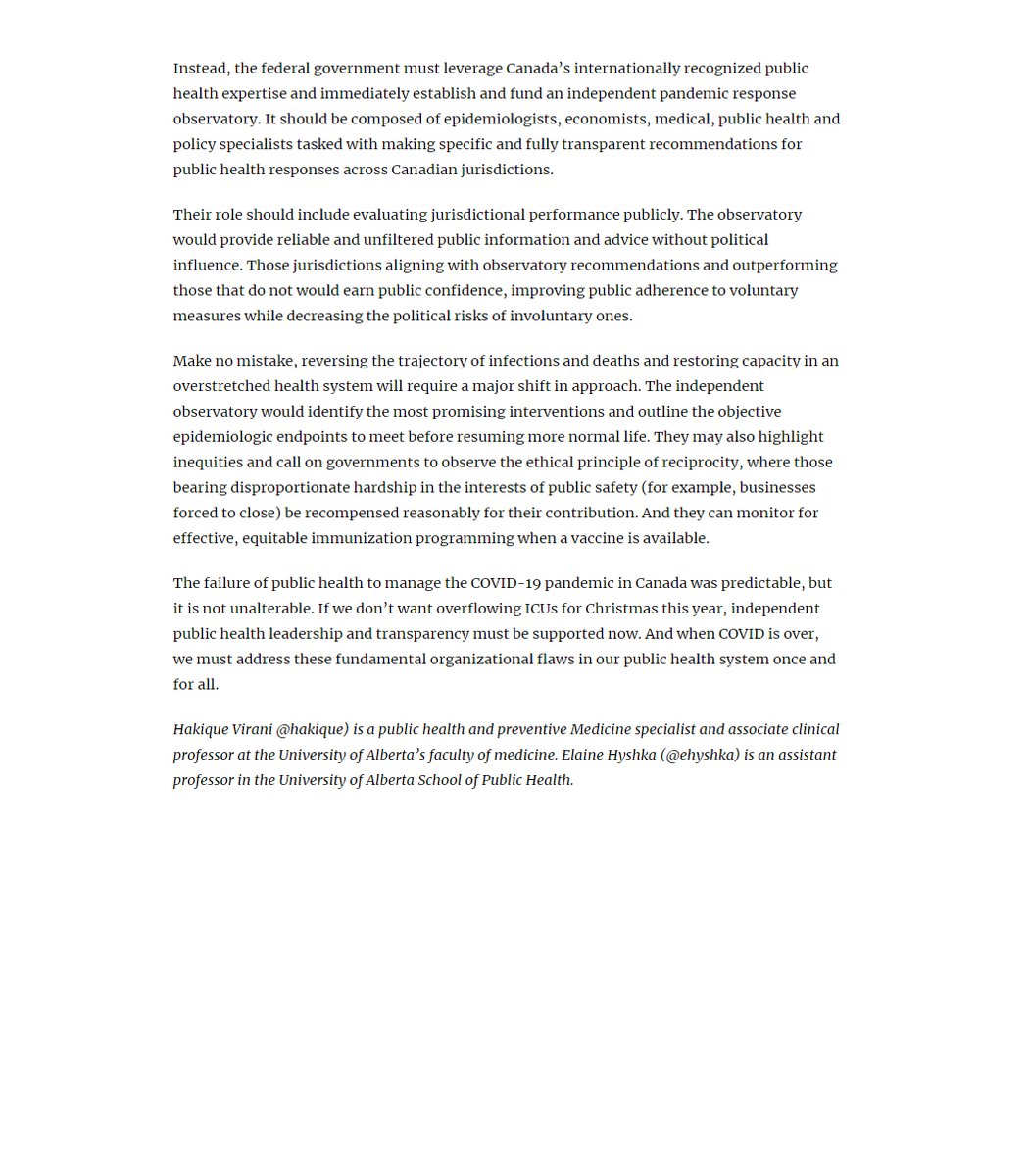
The Auditor General's rebuke of Ontario's COVID response and widespread criticism (under the hashtag #mockdownAB) of yesterday's "new restrictions" announced by Alberta's Premier are examples of eroding public trust in governments' ability to protect citizens.
That's bad news.
That's bad news.
Citizens are being asked to forego weddings / graduations / visits with sick relatives, shutter businesses, and otherwise upend their lives. They'll be asked to get vaccinated in the (hopefully) near future.
All of these requests require trust, and trust requires transparency.
All of these requests require trust, and trust requires transparency.
Little is transparent when CMOHs are subordinate to politicians during public health emergencies, and organizing like that constrains nimble, effective responses to emerging public health threats. It's not the first time we've seen this play out recently.
https://twitter.com/picardonhealth/status/721032280836321280
For 17 years now, Canada and its provinces and territories have ignored the recommendation of multiple commissions after we botched the SARS response. "In public health emergencies, the operational powers of the Minister of Health should be removed and assigned to the CMOH." 
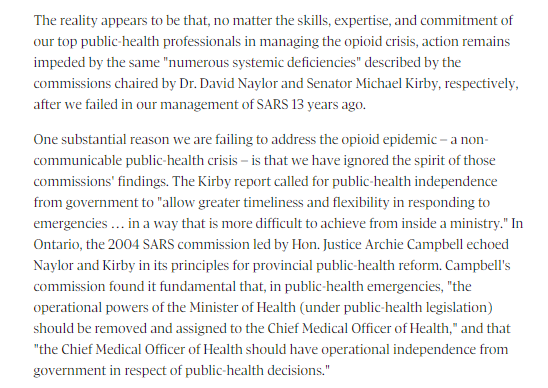
It's true, as professors @Lorian_H and @profamirattaran write here, that CMOHs have clear legal authority to act independently, but the organizational flaws that remain since 2003 limit their willingness to use their powers (much as we wish they would). macleans.ca/opinion/politi…
Public health - not politicians - should be in charge. Not just because public health knows how to prevent infection spread. But because of their ability to weigh multiple impacts (including economic ones) on population wellbeing. From today's Hill Times piece: 
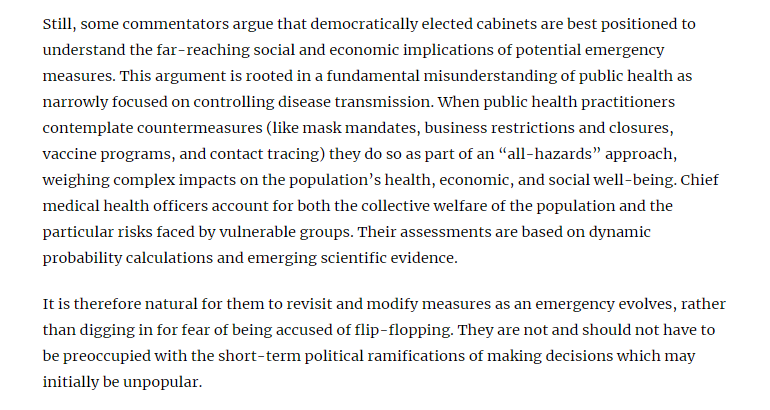
It is as unfair as it is unwise to saddle politicians with the responsibility of making decisions in a public health emergency. Political interests and timelines can find their way into their decision calculations, and our elected leaders have not been "showing their work". 
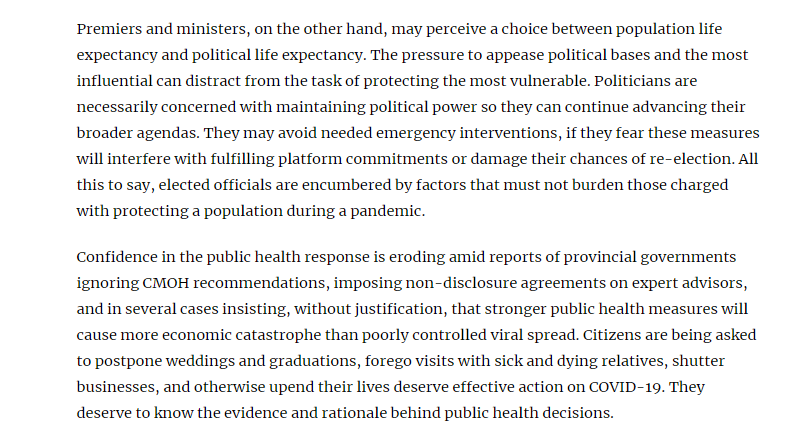
So if politicians' perspectives / priorities and CMOHs' positions prevent wise public health measures, we need some other way to restore public trust and limit this public health catastrophe.
We think establishing a pandemic response observatory can help.
We think establishing a pandemic response observatory can help.
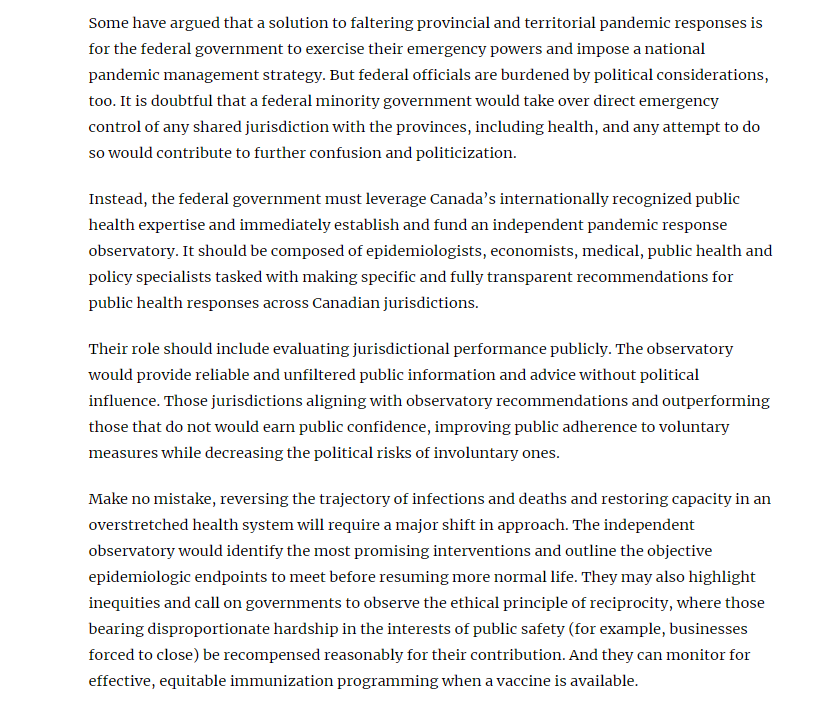
Besides taking the heat off of politicians and advancing an evidence-based approach to overall population well-being, an independent observatory would save citizens and media from being confused between real experts and good tweeters, popular advice and considered advice.
And it would let our health professionals and people providing essential services focus on their work instead of spending their precious little rest time advocating for effective public health measures.
We have a habit of evaluating jurisdictional performance *after* being confronted by public health crisis. Report cards *during* this emergency might get us a better result.
Let's be clear, though. Until every Canadian jurisdiction finally makes good on the recommendations of post-SARS commissions almost 2 decades ago so that public health can act truly independently in emergencies, these failures will happen again and again. (end) 

• • •
Missing some Tweet in this thread? You can try to
force a refresh

